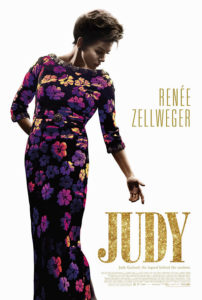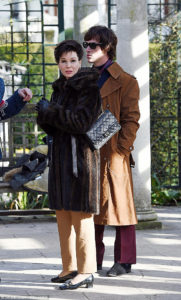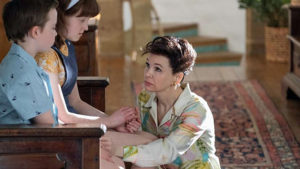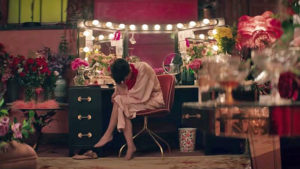 By Steve Crum
By Steve Crum
First things first, ladies and gentlemen. Of course, Renée Zellweger does not sing as well as Judy Garland. But wow, Zellweger does the great Garland proud! In Judy, Zellweger captures Judy Garland’s persona and—surprisingly—her voice and performance demeanor. She is enough like Judy to convince this longtime Garland fan.
Believe me, I dreaded seeing this movie ever since I heard it was being made. And with Renée Zellweger as Judy Garland, God forbid. Not to worry. All is very OK, even though Garland’s daughter, Liza Minnelli, reportedly does not endorse it. (She is briefly portrayed in it, however, by Gemma-Leah Devereux.) Director Rupert Goold, predominantly a director of British stage dramas, handles this film quite well.
For the most part, movie biographies are anti-climactic. The life of the person depicted is usually public knowledge. Judy is no exception, so it is unsurprising  full of pathos and tragedy. It should be no spoiler that Garland’s life ended at age 47 on June 22, 1969 in London, where she was performing a five-week run of concerts. Shortly before, she married her fifth husband, promoter/lounge singer Mickey Deans (Finn Wittrock). It is depicted in the movie.
full of pathos and tragedy. It should be no spoiler that Garland’s life ended at age 47 on June 22, 1969 in London, where she was performing a five-week run of concerts. Shortly before, she married her fifth husband, promoter/lounge singer Mickey Deans (Finn Wittrock). It is depicted in the movie.
Although Judy focuses on her final weeks, there are numerous flashbacks to her MGM days, beginning with the most famous Garland movie of them all, The Wizard of Oz. Darci Shaw plays the young Judy, as she is confronted on the set by MGM’s studio head, Louis B. Mayer (Richard Cordery). His “fatherly” private conversations with her are depicted throughout Judy, each time getting more despotic and terrifying. Mayer is shown to be an absolute thug spewing out threats and insults designed for Judy’s pushing herself way past any human’s limit, let alone a child’s. It is child abuse to the  max, including his orders forcing her to take drugs to keep her awake and drugs to make her sleep. As shown in the film, those bad habits and resulting instabilities were still Judy’s inner demons by 1969.
max, including his orders forcing her to take drugs to keep her awake and drugs to make her sleep. As shown in the film, those bad habits and resulting instabilities were still Judy’s inner demons by 1969.
Later in life, Judy loses custody of her younger kids to ex-husband Sid Luft (Rufus Sewell) because of lack of income and home—taken by taxes and poor management. Her London engagement was hoped to be a positive turning point.
So the movie Judy goes, accentuated by Zellweger’s realistic take on Garland’s mood swings, drinking, and drugging. It was peaks and valleys on stage and off.
Noteworthy is the fine work of Jessie Buckley as Judy’s exasperated yet sensitive personal assistant while in London.
 Of the half dozen Garland songs sung by Zellweger, her performance of Come Rain or Come Shine is pretty fantastic, a real salute to Judy.
Of the half dozen Garland songs sung by Zellweger, her performance of Come Rain or Come Shine is pretty fantastic, a real salute to Judy.
 Zellweger, who undoubtedly will be Oscar nominated for her stellar work, has the advantage of falling short of Judy Garland’s 1940s-‘50s voice quality…but pretty much equaling the final days of the diva’s voice in the late 1960s. By then, Garland’s sound was rough edged, the vibrato weaker. Singing and those familiar Zellweger mouth puckers aside, Renée’s acting is terrific.
Zellweger, who undoubtedly will be Oscar nominated for her stellar work, has the advantage of falling short of Judy Garland’s 1940s-‘50s voice quality…but pretty much equaling the final days of the diva’s voice in the late 1960s. By then, Garland’s sound was rough edged, the vibrato weaker. Singing and those familiar Zellweger mouth puckers aside, Renée’s acting is terrific.
Regarding Tom Edge’s screenplay (based on Peter Quilter’s book, End of the Rainbow), the film falls way short of displaying the witty Judy Garland’s sharp sense of humor.
If nothing else, seeing Judy will trigger Garland fans to get out the old CDs and revisit those Capitol and Decca recordings…like her 1961 Carnegie Hall concert, for starters.
=====
GRADE, On A to F Scale: A-
